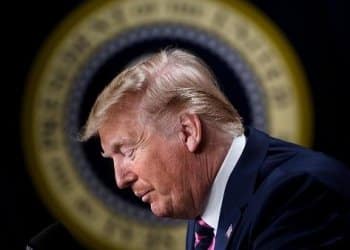Following President Bola Ahmed Tinubu’s signing of the Student Loan Bill, the federal government plans to impose tuition fees on students attending federal universities, polytechnics, and other higher institutions, according to the Daily Trust report.
The measure, now an act of parliament, was signed on Monday. Many people welcomed the event without realising what the new law would mean for the millions of prospective students who rely on tuition-free higher education institutions to further their education.
This would have broader repercussions, according to stakeholders and education experts.
The cost of tuition at national and state levels of government schools in Nigeria, which can reach hundreds of thousands or even millions of Naira at private universities, is zero.
While various fees for accommodations, departmental fees, and course registration vary from institution to institution, the situation has remained the same since independence.
Millions of students have been able to attend school thanks to the tuition waiver. Still, experts claim that the federal government’s implementation of a student loan programme will end tuition-free education.
The Federal Ministry of Education was silent at the time.
What the Students Loan Act specifies
The Students Loan Act’s third clause states that “the loans referred to in this Act shall be granted to students only for the payment of tuition fees.”
This paragraph violates the existing provision that states that tuition is free in public institutions.
In the meantime, Chapter 2 of the modified 1999 Constitution states that the issue of tuition at Nigerian universities is constitutional. No publicly owned institution is allowed under the terms of that law, and it is prohibited for any one of them to charge tuition to any national.
According to the Act establishing the law, the Student Loan Bill would give needy Nigerians simple access to higher education through interest-free loans from the Nigerian Education Loan Fund.
The Nigerian Education Loan Fund’s application process and loan awards to Nigerians seeking higher education in Nigerian institutions of higher learning are governed by the Act, as established by the National.
“All students seeking higher education in any public institution of higher learning in Nigeria shall have an equal right to access the loans under this Act without any discrimination arising from gender, religion, tribe, position or disability of any kind,” the act reads.
However, it was made clear that the applicant must meet all requirements and conditions outlined in the Act before a loan can be granted to a student under the Act.
In his reaction, Prof. Emmanuel Osodeke, President of the Academic Staff Union of Universities (ASUU), stated that the Students’ Loan invoice shouldn’t be new because it has existed for a very long time.
He said, “To the naive, it means relief but to my mind, I think it means higher charges are on the horizon for students.”
He stated: “A rustic place more significant than 133 million reside beneath the poverty line and also you wish to introduce tuition charges? It can be counterproductive.
“Every Nigerian should know what is going to happen next and there may likely be another bill waiting for signature that will introduce tuition fees. If the bill indicated that the loan is to pay tuition fees and there are no tuition fees in Nigerian universities, what is your next approach?” he asked.
He, nevertheless, famous that the union is but to have entry to the correct copy and that they wanted to get it and examine it.
“We have stated way back, in 2017, to President Buhari after they got here up with the difficulty of tuition charges, that each scholar pays N1 million and we stated you can not put that in our settlement and you can not use that to barter with us and with the character of the nation we have now right this moment, there isn’t any method that can work.
He said, “To the naive, it means relief but to my mind, I think it means higher charges are on the horizon for students.”









